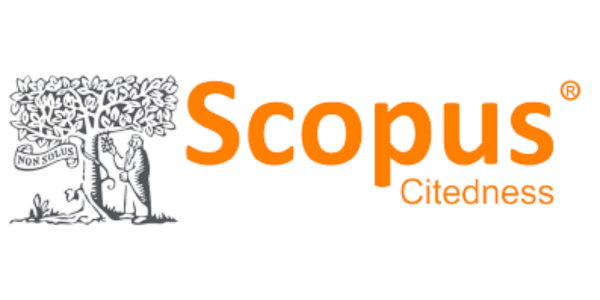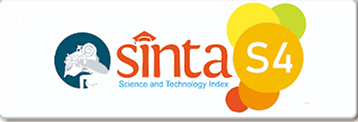Publications Ethics
Publication Ethics and Malpractice Statement
Al-Syakhsiyyah: Journal of Law and Family Studies is partnering with a peer-reviewed, journal published twice a year in print and online by the Faculty of Shariah IAIN Ponorogo. This statement explains all parties' ethical behavior in publishing articles in Al-Syakhsiyyah: Journal of Law and Family Studies, including writers, editors council, (reviewer) partners, and publishers. This statement is based on COPE's Best Practice Guidelines for Journal Editors.
Ethical Guidelines Publishing
Publication of an article in the Al-Syakhsiyyah is an essential building block in developing a coherent network of knowledge and respect. This is a direct reflection of the quality of work of authors and institutions that support them. The articles were reviewed to help and contain the scientific method. Therefore, it is essential to agree on standards of ethical behavior expected of all parties involved in publishing, namely: writer, editor of the journal, (reviewer) partners, publishers, and society.
Faculty of Shariah IAIN Ponorogo as the publisher responsible for escorting Al-Syakhsiyyah all stages of publishing seriously and recognizes the ethical responsibilities and other responsibilities. Institutions are other than committed to ensuring that the print ads and other commercial income have no impact or influence on editorial decisions. They are also committed to assisting communication with journal managers and issuers to another, if deemed useful and necessary.
Allegations Of Research Misconduct
Research misconduct means fabrication, falsification, citation manipulation, or plagiarism in producing, performing, reviewing research and writing an article by authors, or reporting research results. When authors are found to have been involved with research misconduct or other serious irregularities involving articles that have been published in scientific journals, Editors have a responsibility to ensure the accuracy and integrity of the scientific record.
In suspected misconduct cases, the Editors and Editorial Board will use the best practices of COPE to assist them in resolving the complaint and addressing the misconduct fairly. This will include an investigation of the allegation by the Editors. A submitted manuscript that is found to contain such misconduct will be rejected. In cases where a published paper has such misconduct, a retraction can be printed and linked to the original article.
The first step involves determining the validity of the allegation and assessing whether the allegation is consistent with the definition of research misconduct. This initial step also involves determining whether the individuals alleging misconduct have relevant conflicts of interest.
Suppose scientific misconduct or the presence of other substantial research irregularities is a possibility. In that case, the allegations are shared with the corresponding author, who is requested to provide a detailed response on behalf of all of the coauthors. After the response is received and evaluated, additional review and involvement of experts (such as statistical reviewers) may be obtained. For cases where it is unlikely that misconduct has occurred, clarifications, further analyses, or both, published as letters to the editor, and often including a correction notice and correction to the published article are sufficient.
Institutions are expected to conduct an appropriate and thorough investigation of allegations of scientific misconduct. Ultimately, authors, journals, and institutions have an essential obligation to ensure the scientific record's accuracy. By responding appropriately to concerns about scientific misconduct, and taking necessary actions based on evaluation of these concerns, such as corrections, retractions with replacement, and retractions, Al-Syakhsiyyah will continue to fulfill the responsibilities of ensuring the validity and integrity of the scientific record.
Authorship Of The Paper
Authorship should be limited to those who have made a significant contribution to the conception, design, execution, or interpretation of the reported research. All those who have made significant contributions should be listed as co-authors. Where others have participated in certain substantive aspects of the research project, they should be acknowledged or listed as contributors. The corresponding author should ensure that all appropriate co-authors and no inappropriate co-authors are included in the paper. All co-authors have seen and approved the paper's final version and have agreed to its submission for publication.
Complaints And Appeals
Al-Syakhsiyyah will have a straightforward procedure for handling complaints against the journal, Editorial Staff, Editorial Board, or Publisher. The complaints will be clarified to a respected person concerning the case of complaint. The scope of complaints includes anything related to the journal business process, i.e., editorial strategy, citation manipulation, unfair editor/reviewer, peer-review manipulation, etc. The complaint cases will be processed according to the COPE guideline. The complaint cases should be sent by email to: alsyakhsiyyah@iainponorogo.ac.id.
Conflict Of Interest/Competing Interest
All authors must disclose any conflict of interest in their text, whether substantive or financial, that might be interpreted to affect the results or interpretation of their manuscript. All sources of financial support for the project must be disclosed. Material that is not approved in the proposed text may not be used in the research of editors who, without the author's consent, we are authorized to continue working and the rights of others.
Data And Reproducibility
Raw data access should be provided for review editorial need.
Ethical Oversight
Suppose the research work involves chemicals, humans, animals, procedures, or equipment with any unusual hazards inherent in their use. In that case, the author must identify these in the manuscript to obey research using animals and human subjects. If required, the Authors must provide legal, ethical clearance from the association or legal organization.
If the research involves confidential data and business/marketing practices, authors should justify whether the data or information will be hidden securely.
Post-Publication Discussions And Corrections
Al-Syakhsiyyah accepts discussion and corrections on published articles by the reader. In case the reader giving talks and corrections toward a published article, the reader can contact by email to Editor in Chief by explaining the discussions and revisions. If accepted (by Editor in Chief), the discussions and correction will be published in the next issue as a Letter to Editor. Respected Authors can reply/answer the discussions and corrections from the reader by sending the editor's reply in Chief. Therefore, Editors may publish the answer as Reply to Letter to Editor.







